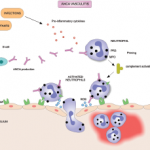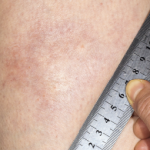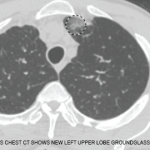Hadlima (adalimumab-bwwd), which is biosimilar to adalimumab, is now FDA approved to treat multiple autoimmune diseases…


Hadlima (adalimumab-bwwd), which is biosimilar to adalimumab, is now FDA approved to treat multiple autoimmune diseases…

Detecting interstitial lung disease in RA patients can be challenging. But evaluating risk factors and the use of imaging can help clinicians identify and manage this condition in patients…

MADRID—During the 2019 European Congress of Rheumatology (EULAR), held June 12–15, speakers addressed the complexity of vasculitis in a Challenges in Clinical Practice session titled, How to Maintain Remission in Vasculitis. Although vasculitis appears in many varieties, one commonality exists among these related yet distinct conditions: When there is vital organ or systemic involvement, disease…

A 2019 update of the ACR’s previous clinical practice guideline on axial spondyloarthritis is now available online. Lead investigator Michael Ward, MD, shares advice for implementing the guideline updates, including those related to sequencing and tapering biologics, and knowing when to obtain images.

Results from multiple phase 3 clinical trails have led to the FDA approval of upadacitinib to treat patients with moderate to severe active RA…

Research shows filgotinib may be safe and effective for treating rheumatoid arthritis. The drug’s manufacturer is expected to be submit a new drug application for filgotinib to the FDA in 2019…

In a four-part clinical trial program, researchers are assessing the safety and efficacy of otilimab with placebo in RA patients, along side conventional treatments, such as tofacitinib, and DMARDs…

Catherine Kolonko |
In an international clinical trial, adding the drug belimumab to standard maintenance therapy for patients in remission with vasculitis did not lower the relapse rate. The double-blind, placebo-controlled study evaluated the safety and efficacy of belimumab as adjunctive therapy to maintain remission in anti-neutrophil cytoplasmic antibody (ANCA) associated vasculitis (AAV). Results of the multi-center, industry-sponsored…

In September 2018, the U.S. Food & Drug Administration (FDA) granted fast-track status to FCX‑013, a gene therapy product developed to treat moderate to severe localized scleroderma (morphea). Previously, the treatment received an orphan drug designation for localized scleroderma, as well as a rare pediatric disease designation. Phase 1 and 2 studies will assess safety…

Ambreesh Chawla, MD, Ashwini Komarla, MD, & Sujatha Vuyyuru, MD |
Eosinophilic granulomatosis with polyangiitis (EGPA), also known as Churg-Strauss syndrome or allergic granulomatosis and angiitis, is a rare small- and medium-vessel vasculitis. This disease was first described by American pathologists Jacob Churg and Lotte Strauss in 1951.1 Although the vasculitis is often not apparent in the initial phases of the disease, EGPA can affect any…